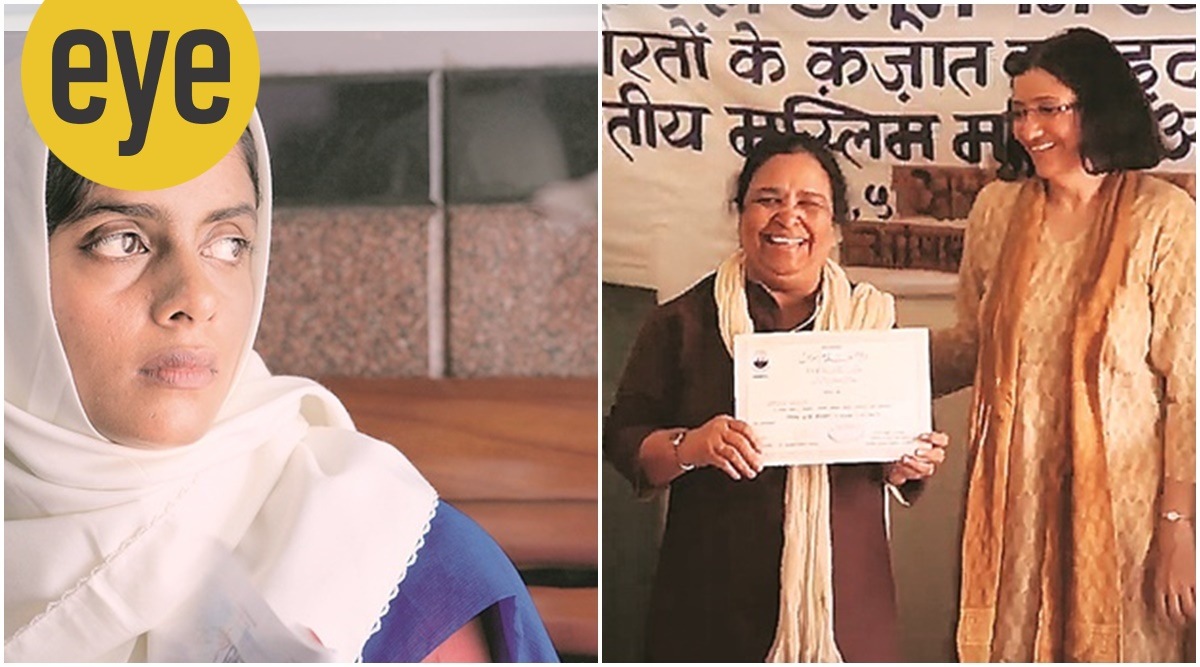 The history of sexuality is one of class struggle.
The history of sexuality is one of class struggle. In Sajin Baabu’s third Malayalam outing, Biriyaani (Flavours of Flesh), the camera enters the bedroom and pokes at power relations at the most intimate levels of women’s experience. It steps out, unrelenting and unapologetic, and lays bare hallowed social structures — marriage, religion, law, media — as they reduce the marginalised to a pound of flesh. At the centre of this vortex stands Kani Kusruti’s Khadeeja.
The history of sexuality is one of class struggle. Khadeeja is born into poverty, to a mentally challenged fisherwoman (played by theatre actor Shailaja Jala). She’s stuck in a loveless marriage with an older man, for whom she’s a mere body — not a Foucauldian “docile” body though. As news breaks of her brother joining the Islamic State (IS), she is hounded by the police, socially ostracised, loses her son, house and marriage. If meat/flesh expresses love (albeit dark) in Bhaskar Hazarika’s Assamese film Aamis (2019; on Moviesaints), it serves revenge in Biriyaani.
Letting her eyes do the talking, Kusruti brings a Smita Patil-like poise, gravitas and control over her craft in her first feature-length role, written solely for her (after Baabu saw her in the Tamil short film Maa, 2018, by Sarjun KM; on YouTube). It’s symbolic that the protagonist should be named after the first woman of Islam — Prophet Muhammad’s first wife and a merchant in her own right.
Growing up in a small village, Koopu, Thiruvananthapuram district, Baabu had heard of women and families left behind by men who ran away to join the IS. News from Kasaragod of men who died in the process urged Baabu to make a film on how these families cope with life. He studied the lives of Muslim women from villages, fishermen community, and ossathis (female barber in a mosque/jamaat; the male ossan conducts circumcision).
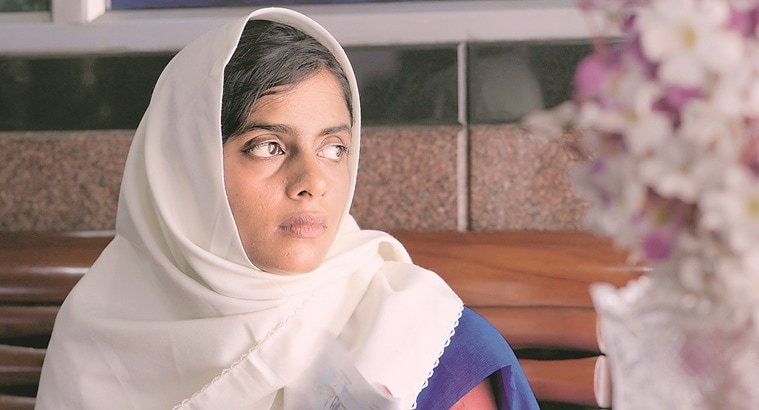 Kusruti in Biriyaani
Kusruti in Biriyaani
It would only be a matter of time before Kochi-based Baabu’s feature film would face opposition from society, in spite of a clearance (with a few scene cuts and blurs) by the film-certification board, and picking up awards at home and the world. It got NETPAC Award in Italy in 2019 for the best film, Padmarajan Award for best screenplay, Kerala State Film Award for best actress (Kusruti) and, most recently, a Special Mention at the 67th National Film Awards, among others. It screened at the 25th International Film Festival of Kerala earlier this year, and, in what is a feat for an independent filmmaker, released in limited theatres in Kerala late March. But, Baabu was yet to meet his next obstacle.
Some theatres listed the film but decided not to screen it. “Two theatre managers said the content isn’t good, it has sex scenes, and would affect their credibility,” says Baabu, 34, for whom this was a déjà vu moment. Last year, at Indonesia’s Jogja-NETPAC Asian Film Festival, it “wasn’t allowed screening by their censor board”.
Even while making the film, in spite of permissions from Tamil Nadu’s Athankarai Pallivasal Dargah trust, Baabu faced the wrath of “devotees from Kerala who tried to stop the shoot, calling it haraam (forbidden)”. “We shot guerrilla-style, the actors would wait for my cue: I’d call out characters’ names, Khadeeja or Suhrabeebi, instead of saying ‘action’,” says the director, who eventually had to recreate the dargah at Chitranjali Film Studio, Thiruvananthapuram.
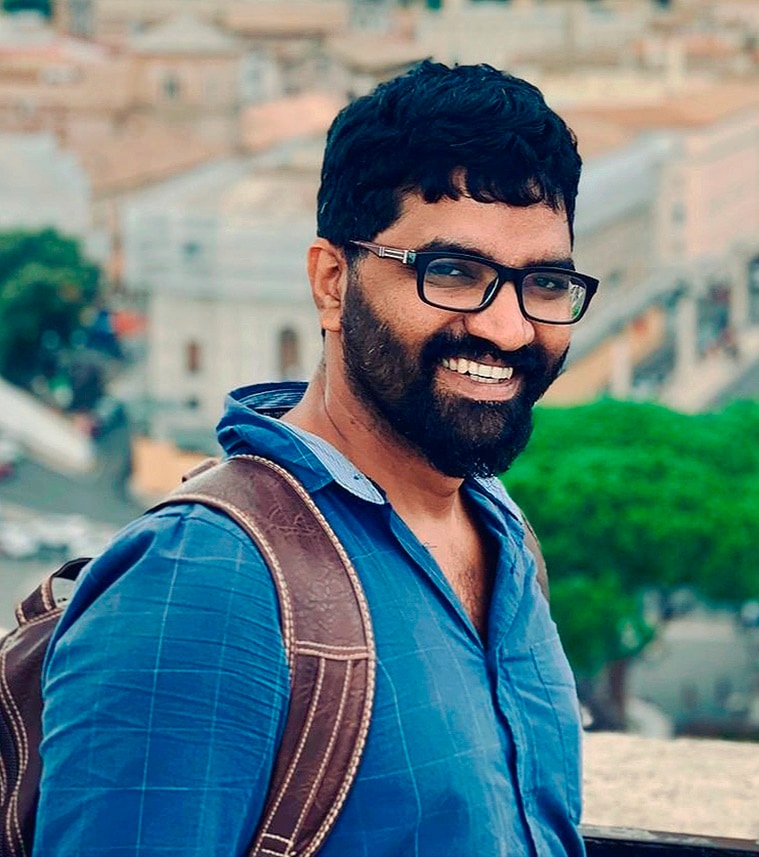 Growing up in a small village, Koopu, Thiruvananthapuram district, director Sajin Baabu had heard of women and families left behind by men who ran away to join the IS
Growing up in a small village, Koopu, Thiruvananthapuram district, director Sajin Baabu had heard of women and families left behind by men who ran away to join the IS
So long as gender politics pertains to women’s role as a provider, in the kitchen, and belonging to a certain class, as is seen in Jeo Baby’s 2021 Malayalam film The Great Indian Kitchen (on Prime Video, and from April 16 on Cinemapreneur), what’s dished is palatable, the moment it enters the bedroom or speaks truth to power, acid refluxes begin.
The instant triple talaq sent to Khadeeja via SMS in Biriyaani thematically links to Farha Khatun’s Holy Rights, which won the National Award for Best Film on Social Issues, along with Sudipto Kundu’s Ladli. “It’s a reality that Muslim women are facing in India,” says Baabu, who was on the jury that selected Khatun’s film for the 51st International Film Festival of India in January.
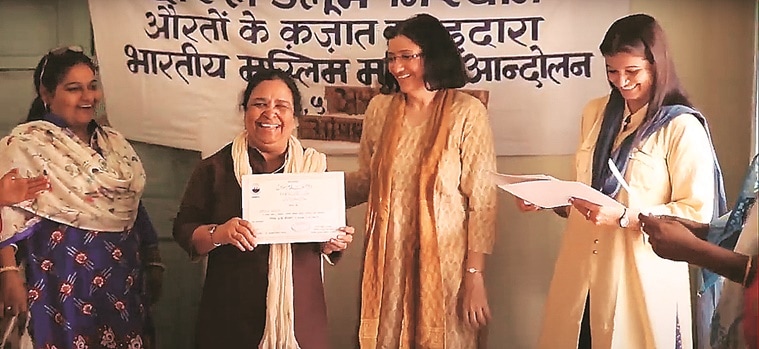 A still from Holy Rights
A still from Holy Rights
Khatun’s Urdu/Hindi documentary follows Bhopal-based Safia Akhtar. It shows Akhtar gearing to become a qazi (Sharia-court judge) — under a qazi-training programme run by Mumbai’s Bharatiya Muslim Mahila Andolan — to educate Muslim women about their rights as given in the Quran and the Constitution.
“Instant triple talaq is ruining women’s lives,” Akhtar says in the film, “Islam doesn’t permit it. Three months’ notice is to be given, not 13 days.” The story of the shayari-reciting 58-year-old Akhtar — unfazed when threatened with a fatwa — stood out for Khatun.
Holy Rights, made over five years and produced by Priyanka More, springs from a personal space. A young Khatun had heard a distressed distant aunt getting nearly divorced and neighbours who’d beat or blackmail their wives with it. “Giving instant/oral divorce in a fit of anger is not the way. What the Supreme Court ordained (striking it down in 2017) is what the Quran also says,” says Kolkata-based Khatun, 32, an editor at the Films Division. Her film I Am Bonnie (2014), about a celebrated intersex footballer fading into oblivion, had got the National Award, too.
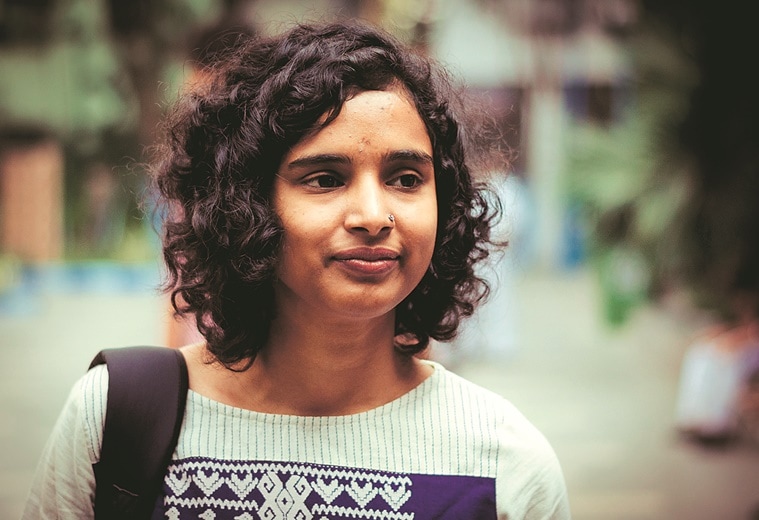 Farha Khatun’s Urdu/Hindi documentary follows Bhopal-based Safia Akhtar
Farha Khatun’s Urdu/Hindi documentary follows Bhopal-based Safia Akhtar
“Mohila abar ki qazi (how can women be qazis)?” Khatun has heard this phrase one too many times. It isn’t about religion, but a mentality, she says. “Whenever someone tries to enter restricted or occupied zones, one will face opposition. When social conventions don’t judge people by their work but by their gender, that’s patriarchal mentality,” she says.
While “some women were troubled why I didn’t show any male qazi, others said, ‘unka toh khula maidan hai, sab jagah woh hi woh dikhte hain (they are all over the place)’. So, I chose to show the other side,” says Khatun.
- The Indian Express website has been rated GREEN for its credibility and trustworthiness by Newsguard, a global service that rates news sources for their journalistic standards.
 Continue with Facebook
Continue with Facebook Continue with Google
Continue with Google
